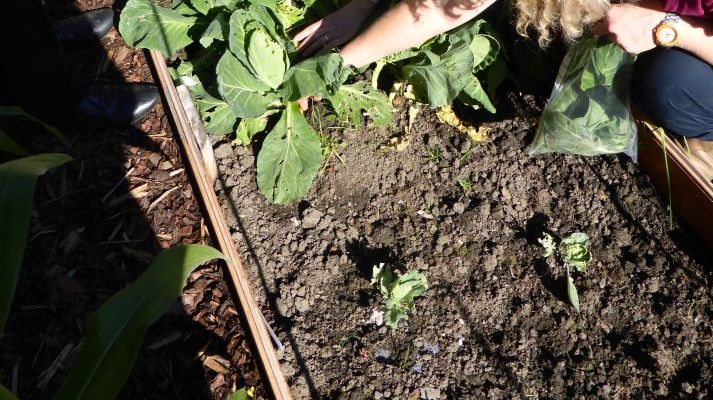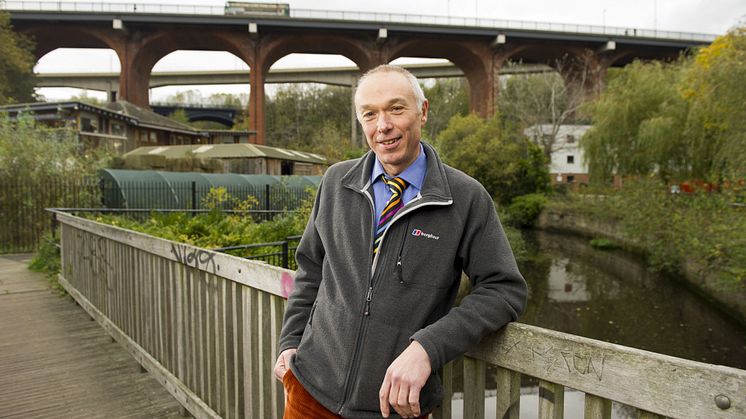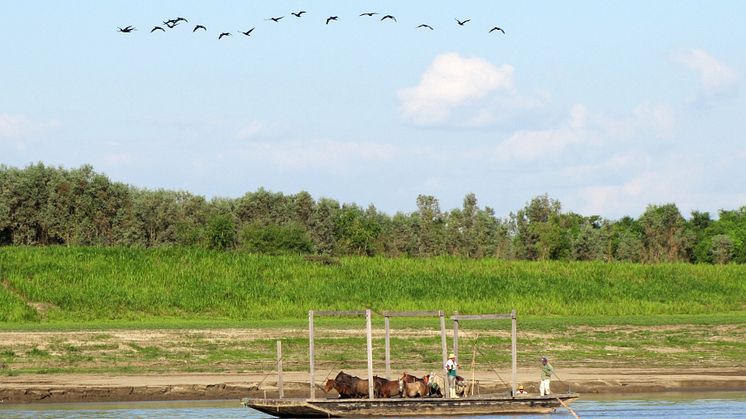
Press release -
Allotment soil is safer than national guidelines suggest
With the rise in popularity of people growing their own fruit and vegetables, it may be surprising to know that many urban allotments have soil with lead levels above UK guidance values.
However, new research from Northumbria and Newcastle Universities suggests that the national soil guidance should be revised as it does not accurately recognise how lead is stored in the soil and transfers to vegetables.
Defra - the Department for Environment, Food and Rural Affairs - introduced new guidelines in 2014 stating that 80mg of lead per kilo of soil was considered safe. Newcastle City Council knew that its allotments had much higher levels. They had previously investigated allotments in the city and found very few with lead concentrations below this guidance value. In fact, the average lead level was significantly higher, at 550mg per kilo.
This left the city’s allotments at risk of closure, despite them having been used for decades to successfully grow fruit and vegetables.
Recognising the social and health benefits that gardening brings, the Council was keen to ensure it could keep its allotments open. It commissioned a study to investigate whether the level of lead in the soil was reflected in the levels of lead in the blood of gardeners. They would be exposed to lead whilst gardening and from eating the vegetables they grow, meaning they could potentially face health issues as a result.
Academics from Northumbria’s Department of Geography and Environmental Sciences and Newcastle University worked with a range of partners including Newcastle City Council, UK Health and Safety Laboratory, ALS Limited, the Food Standards Agency and the Environment Agency on the two-year-long Newcastle Allotments Lead Biomonitoring Study.
The researchers did not find any statistically significant differences in blood lead levels after analysing blood taken from more than 43 gardeners compared to 28 of their non-gardening neighbours.
They also examined almost 300 samples of soil and crops gathered from 31 sites in Newcastle. They found that lead concentrations within vegetables grown in the allotments – such as parsnips, carrots, leeks and onions – varied depending on the type of vegetable, but typically remained below national food safety guidelines.
However, they did find that how the lead was stored in the soil would impact on how safe the soil was.
Their findings have provided new evidence to support local authorities who want to keep safe allotment sites open.
Professor Jane Entwistle is an environmental geochemist at Northumbria University, and co-led the study. She explains: “Many urban allotments in the city have higher concentrations of lead in their soil as the land was previously used for the disposal of hearth ash, in addition to the build-up of generations worth of urban air pollution from traffic emissions.
“Other factors, such as using bonfires to burn old doors and window frames coated in lead paint, the use of which was only phased out in the 1970s, can mean the soil contains more lead which increases gardeners’ exposure to the pollutant.”
The allotment soils in Newcastle all had lead which had aged and weathered naturally over the years, whereas the guidelines were developed based on a range of soils, some of which had been artificially contaminated with lead in a lab, or where the lead had come from wastewater and sewage treatment areas.
Dr Lindsay Bramwell, from Newcastle University, commented: “Lead can cause a range of health issues including high blood pressure, reduced fertility and anaemia. Gardening and eating food grown in contaminated urban areas can increase our exposure to lead.
“Fortunately, our study found that this is not the case and has, in fact, helped to explain why there is no difference in blood lead levels in gardeners compared to non-gardeners.”
Professor Entwistle suggests that the soil screening guidelines have overestimated the amount of lead actually going into plants.
“UK soil screening guidelines are overly cautious in the context of many of our urban allotments and our research has found that how the lead is held in the soil is more important than simply the presence of lead,” she explains.
“Most urban allotments and gardens have aged, weathered lead in their soil. While some metals are more readily taken up by plants, lead remains attached to the soil as it is not a mobile element. What we therefore need to do is look at the form of the lead and natural regional variances rather than using standard guidelines that don’t recognise these differences.”

The UK has more than 10 major groups of soil which differ depending on the region. Soil in the North East tends to be heavy and clay-rich. The Hampshire and Berkshire Downs are typically well-drained fine chalky soils, whereas Fenland soils are peat rich. Professor Entwistle says that the guidelines should be revised depending the type of soil and how tightly the lead is bound within the soil.
“We know that the current allotment model is overestimating the amount of lead going into plants,” she said. “Our study has helped to explain why there is no difference in blood lead levels in gardeners growing in soils that have levels of lead that are ten times higher than national guidelines state are safe.”
Ian Martin, Principal Scientist in Air, Land and Water at the Environment Agency, commented: “This study provides useful evidence on the complex relationship between lead levels in soil and human exposure, which improves our understanding and assessment of potential risks to health in the urban environment from a legacy of land contamination.”
Mark Todd, Newcastle City Allotment Officer, added: “Allotment gardening has always been considered a healthy and beneficial activity in terms of physical and mental well-being of individual allotment gardeners and for the social health of their local communities.
“These study findings give allotment gardeners peace of mind that they can continue their passion for gardening without the worry that the site will be closed because of unfounded health concerns.”
The full findings of the study, An apple a day? Assessing gardeners' lead exposure in urban agriculture sites to improve the derivation of soil assessment criteria, are published in the journal, Environment International.
Professor Entwistle is a member of Northumbria’s Environmental Geochemistry and Ecology research group which provides environmental and analytical training and consultancy for industry and public sector organisations. As well as looking at how pollutants in the environment can be a risk to human health, researchers are also involved in studies examining how carbon is captured in ecological habitats in ponds and coastal areas and environmental health policies.
Topics
Categories
Northumbria is a research-rich, business-focused, professional university with a global reputation for academic excellence. To find out more about our courses go to www.northumbria.ac.uk
If you have a media enquiry please contact our Media and Communications team at media.communications@northumbria.ac.uk or call 0191 227 4604.










